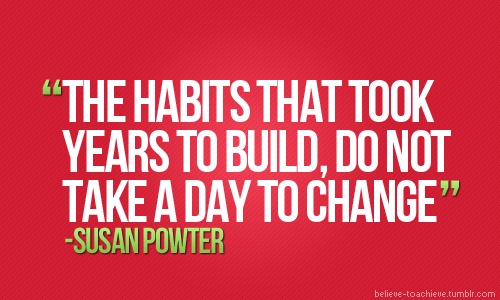
The 24-Hour De-Bloat Plan
October 1, 2015
What’s the Deal with Flaxseed?
October 12, 2015Slow and steady wins the race – but individuals often crave fast, fierce, and furious for their weight loss programs.
Instant gratification dominates the mindsets of most would-be kilo-shedders. They want quick results and quicker satisfactions.
It’s therefore all too easy to become discouraged when this doesn’t happen.
The quest for instant gratification is a familiar one. This is the age of excess, after all, and goods, services, and information are readily available.
We become accustomed to all things speedy – and this defines our weight loss goals, setting high expectations of lost inches and fading fat.
Those expectations often come crashing down within the first week.
To lose a single pound, individuals must eliminate approximately 3,500 calories from their diets. This proves difficult, with many struggling to adjust their lifestyles (food choices, exercise implementation, increased water intake, portion reductions, etc.).
Consider this:
The reports show that 13% of individuals ages 15 to 30, 17% of individuals ages 31 to 50, and 19% of individuals ages 51 to 70 participate in some form of dieting. Australian Bureau of Statistics
The Monte Mido Centre, however, reports that 95% of diets fail, with individuals regaining all (or more) of their lost weight within the first five years.
These numbers showcase the instant gratification mindset and its lack of results.
The need for better, faster, and more leads weight-watchers to push hard during their first few days of dieting – and then become upset when no obvious results occur. Failure is inevitable.
Don’t let this happen!
Redefine every thought. Channel the need for gratification into an understanding of patience.
Weight loss isn’t an easy process, demanding time and commitment. It’s therefore essential that individuals approach dieting with a mindset that reflects this.
Being healthy is far more important than being (immediately) satisfied.
We suggest removing short-term phrases – now, today, soon. Replace them instead with long-term goals: eventually and certainly.
This ensures a more realistic mind-set for all and strips away the dangers of immediate gratification.
Be safe, be healthy, and be happy. Be OnTrack.





